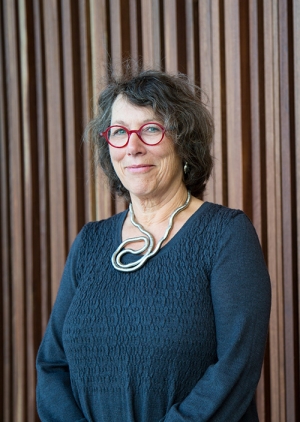Seeking inclusion for all
Research news
Since she first arrived in Australia from the UK in 1974, Deakin's Inaugural Chair of Disability and Inclusion, Professor Susan Balandin, has seen enormous progress in the field of disability.
"My first job in Australia was in an 1100-bed institution for people with intellectual disabilities, which was home to children as young as three - and many of these people had minor disabilities," she said, "but, of course, this was the case all over the world."
"Back then, we could never have envisaged deinstitutionalisation, or that something like the National Disability Insurance Scheme would happen," she added.
"The NDIS is an enormous political and social reform that, for the first time in Australia, allows people with disabilities and their families to make meaningful choices."
With over 40 years of experience in the disability field, Professor Balandin has joined Deakin from her position as Director of a research centre at the University of Wellington, New Zealand, before which she was Professor in Health Sciences at Molde University College in Norway.
Professor Balandin is a passionate advocate for the rights of people with disabilities, who "have the right and should be fully included in their communities of choice." The addition of the word "inclusion" in her title - a first for Australia - marks an important step forward in attitudes towards disability, she argues.
"People with a disability are often not part of the wider community, but, instead, have been staying within their own groups and families," she said. "I believe that they have every right to be fully included - and a lot of this is to do with community attitudes."
"Deakin's embracing of the philosophy of inclusion indicates our intention to involve people with disabilities within both the university community and the wider community. Too many people think that universities are ivory towers, but in fact, we are key players within the communities that we serve."
Of course, lack of full inclusion is not unique to Australia. On the contrary, Professor Balandin believes that Victoria has become a world leader in disability support, particularly through the introduction of programs such as the State Government's 'Libraries for All' initiative and Deakin's innovative 'Picture my Future' program, which features on-line technology that supports people with severe communication impairments to make decisions through the NDIS planning process.
Deakin's award-winning Toby Playpad app has also provided a "fantastic resource" for children with autism.
"Geelong and Deakin have become Australian centres of excellence in disability support," she said. "This has been further cemented with the recent opening of the National Disability Insurance Agency in Geelong."
Professor Balandin's appointment at Deakin coincides with the first anniversary of the NDIS in Geelong and the hosting - in partnership with St Laurence - of the "National Report Card Conference" at Deakin's Waterfront Campus on 11-12 August.
Professor Balandin chaired a panel discussion at the conference, which has brought together more than 400 delegates from across Australia to review the first year of NDIS trials in Geelong and the Hunter Valley, and consider refinements ahead of the national roll-out.
Her appointment couldn't have been better timed, with Deakin set to play a significant role in the roll-out and involvement expected from many areas of the university such as health, law, medicine, education, bio-engineering, epidemiology and health economics.
"One of the most significant benefits - and challenges - of the NDIS concerns the issue of choice," she said. "Some people with disabilities haven't made choices before, so it will be difficult for them to know what to choose and how to navigate what's available. They may not be able to read or write, and they may have very limited communication skills, so their families will also have a big responsibility.
"Yet, the NDIS is a big step towards recognising that families and people with disabilities are experts about their own lives."
Share this story
 Inaugural Chair of Disability and Inclusion, Professor Susan Balandin.
Inaugural Chair of Disability and Inclusion, Professor Susan Balandin.
